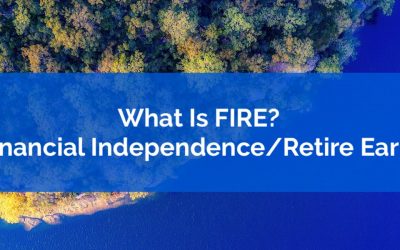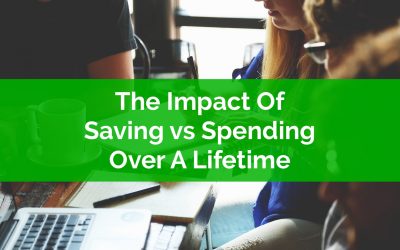Congratulations! You’re on the waitlist!
We will e-mail you before the bootcamp launches for an exclusive preview.
Check out our latest blog posts…
RRSP Deadline: Should You Make An RRSP Contribution This Year?
The RRSP deadline is quickly approaching on March 1st, and you should get ready for advertisements selling you all sorts of RRSP products over the next few weeks. But despite what the advertisements suggest, should you actually make an RRSP contribution this year? Maybe, but maybe not.
In this blog post we’re going to highlight 5 reasons why you SHOULD NOT make an RRSP contribution this year.
As we build financial plans with clients, we sometimes come across situations where RRSP contributions were made to the detriment of the client. The client was in one or more of the situations below, but they were still advised to make RRSP contributions, or they were advised to split contributions between RRSP and TFSA, or sometimes they were not given any tax planning or government benefit advice at all.
Depending on the situation, this has cost a number of clients $10,000’s in extra income tax or reduced government benefits.
So, as the RRSP deadline approaches, watch out for these five situations where RRSP contributions may not be the best option, and always seek the advice of an unbiased advice-only financial planner to create a thorough income tax and government benefit strategy before making $1,000’s in RRSP contributions.
What Is Financial Independence Retire Early aka FIRE?
You may have noticed a new term starting to creep into the mainstream financial media, that term is FIRE, and you might be wondering, “What the heck is FIRE? And how is it related to personal finances?”.
FIRE is an acronym that stands for Financial Independence/Retire Early. The basic idea is that if you pursue FIRE you can eventually stop working for money. You can be financially independent. You can do anything, retire early, keep working, volunteer, basically you can have more freedom.
The idea is that with enough savings/investments you’ll eventually reach the point where you can live off your investment income indefinitely. Once you reach this point you’re considered financially independent, you no longer NEED to work for an income, and can retire to a life of leisure (although you may choose to continue to work, change roles/professions, start a business, or volunteer).
While the concept of early retirement sounds amazing, it does take quite a bit of focus and determination to get there. To reach FIRE it requires a high savings rate, very high.
The typical financial advice given to the public is to save and investment approximately 20% of your net income (part of the simple 50/30/20 budget).
But to reach financial independence retire early you need to save more, much more. To reach FIRE you need to have a savings rate somewhere in the 30%-70%+ range. The higher your savings rate the faster you can stop working for money.
Because it’s easier to reach financial independence/retire early with a high savings rate, the path to FIRE is made easier with an above average income. With an above average income, basic expenses are easily covered, and it becomes more about managing lifestyle inflation. People who pursue FIRE try to limit their lifestyle inflation to maintain a high savings rate.
FIRE is also possible with a below average income, but requires a lot of creativity to reduce basic expenses. This may include house hacking, avoiding car ownership, and more extreme lifestyles. To reach financial independence/retire early with a low-income you need to live an alternative lifestyle.
Reaching FIRE is one of those extreme personal finance goals, it’s a goal that isn’t for everyone.
Even though the end goal sounds appealing, it requires a lot of hard work and dedication along the way. Reaching financial independence retire early means living way below your means for the rest of your life. It’s a lifestyle more than it is an end goal. It’s a lifestyle with a lot of freedom, but it’s also a lifestyle that requires a lot of control.
If you’re able to control your spending, and save a large % of your income, then reaching financial independence might only be a few years away.
To find out how far away you are from financial independence you can make a copy of our FIRE calculator and quickly calculate how many years it will take to reach FIRE in your situation. It will help you estimate how many years from FIRE you are based on your net-income, current expenses, and existing savings.
We’ve used our FIRE calculator to create four examples of how to reach FIRE.
The Impact Of Saving vs Spending Over A Lifetime: A Case Study
Spending is one of the most important factors in someone’s personal finances. Even a small amount of extra spending, over a long period of time, can have a very large impact on someone’s financial situation.
In this post we’re going to explore how large this impact can be. To do that we’re going to follow two people through their financial lives, from starting university all the way through to late retirement. Year-by-year we’re going to see how spending impacts their finances.
Spending is an interesting topic. It’s such an important factor in everyone’s finances and yet everyone spends money differently. We all value things differently, which means we choose to spend extra money on different things. This makes it very hard to figure out what “the right amount of spending” actually is. Spending is very subjective.
What makes it even more complicated is that we all have learned habits and behaviors that impact our spending. These habits are learned over time and can be very difficult to break.
Plus, we’re all impacted by our past spending decisions (ie locking into an expensive car lease, buying ‘too much’ house, putting a vacation on credit). Even if we have the best intentions going forward, these past spending decisions can be an anchor.
Spending also has a large impact. A small amount of extra spending can have a large impact over time. Compounding means that just a little bit of extra spending, over a long period of time, has an enormous impact on our financial lives.
As an example, spending an extra $10 per day seems small. It’s pretty easy to spend $10 per day. This is a coffee every day plus a purchased lunch every other day. This is a nice meal at a restaurant once per week. It’s an extra piece of clothing every week or two. Or it could be a slightly larger home costing an extra $100,000, which comes with extra interest expenses, extra property tax, and extra heating and maintenance costs. It could be driving to work instead of walking, biking or using public transit. Or it could be a combination of these things.
Even though an extra $10/day in spending seems small and is easy to do if you’re not paying attention, over time it has a huge impact on a person’s financial life.
This post will follow two people through their financial lives, with one person spending $10/day more than the other. It may seem small, after all it’s only $10, but that adds up $3,650 per year, or $36,500 every 10-years, and that doesn’t even account for compounding.
By following two people through their financial lives we’ll see how spending an extra $10/day causes their financial lives to diverge dramatically.
For our example we’ll use two friends from high school, Katie and Kyle, they’re both 18 years old and about to enter university. They’re both entering an engineering program and have very little saved for university. They’ll use student loans plus summer jobs earning $12,000 per summer to help pay for their education.
Most important however is that Kyle is the more spendthrift friend out of the two, spending an extra $10/day than Katie. This habit of spending vs saving will continue throughout their lives with Kyle always spending $10 more per day and Katie saving that $10.
Let’s follow Kyle and Katie through a few periods of their life. We’ll see how a seemingly insignificant $10/day can cause their financial lives to diverge dramatically over time.



